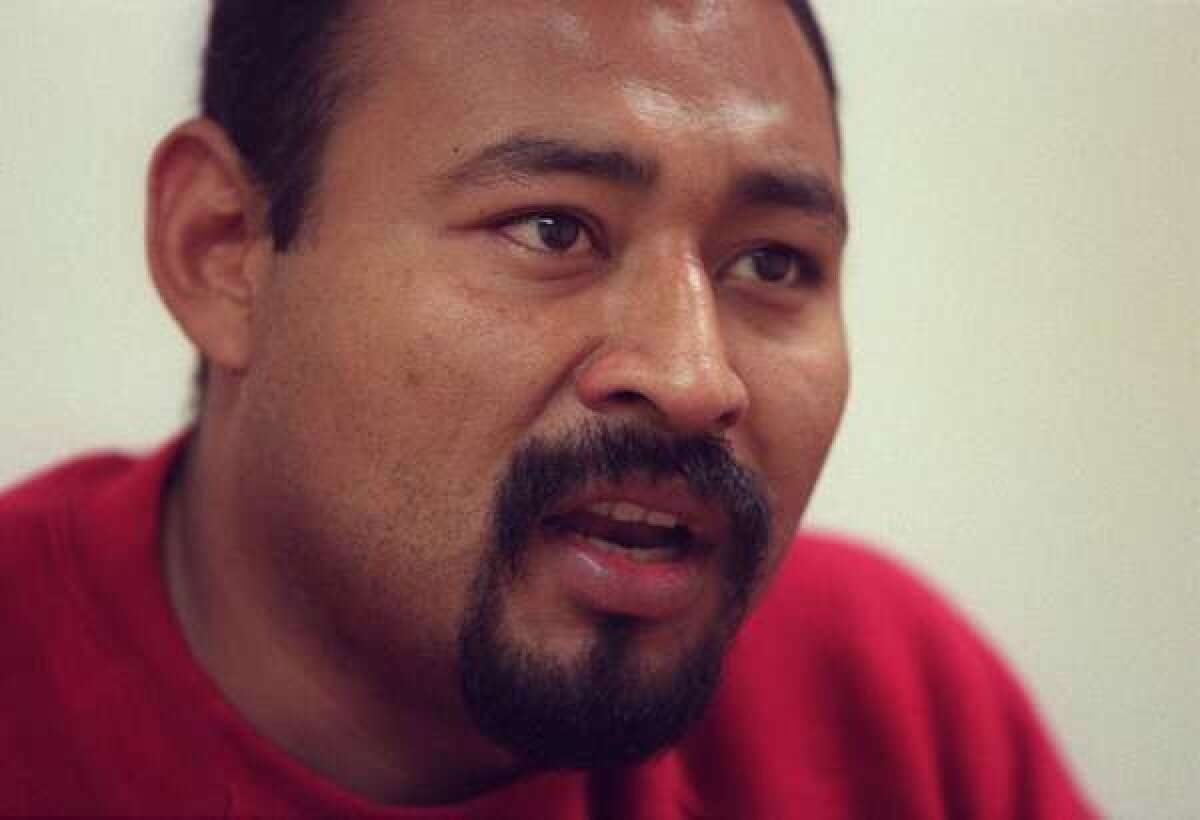For Alex Sanchez, justice delayed or justice denied?

- Share via
Nearly three years after the U.S. attorney’s office in Los Angeles first filed charges against Alex Sanchez, a well-known gang intervention worker, for racketeering and conspiracy to commit murder, those same federal prosecutors are now seeking to dismiss the case.
Why? Prosecutors say the evidence they presented to a grand jury contained errors and omissions. Grand jurors relied on that evidence to indict Sanchez in 2009 for his role in allegedly plotting to murder a gang member.
A spokesman for the U.S. attorney’s office said he’s prohibited from discussing anything pertaining to the grand jury proceedings.
Sanchez, a former gang member, has repeatedly denied the charges and said he remains committed to his work with Homies Unidos, a bi-national gang peace organization with roots in Los Angeles and El Salvador.
Though it is laudable that U.S. Atty. Andre Birotte Jr.’s office concedes in court papers that the case is undermined because of bad evidence, I can’t help but wonder why it took prosecutors three years to figure out that the evidence contained errors and the charges should be dropped. Surely, everyone is entitled to a fair and speedy trial.
After all, prosecutors were alerted to problems early on. Sanchez’s lawyers, Kerry Bensinger and, later, Amy Jacks, said as much in 2009 in court filings, and later during a bail hearing, and in further declarations in August 2010. And just last month, Jacks repeated the call for the government to drop its case because prosecutors “relied on false evidence” and “lied to the grand jury and withheld exculpatory evidence.”
The actual evidence has not been produced in court because no trial has taken place, but transcripts of the wiretaps that are at the center of the case are public. Prosecutors argue that Sanchez and other members of the notoriously violent Mara Salvatrucha can be overheard plotting to kill another gang leader in El Salvador. Sanchez allegedly uses a gang name, as do others, including a man nicknamed Zombie, who Sanchez’s lawyers say was wrongly identified as the killer. Prosecutors and defense lawyers later traveled to El Salvador, where they located a person who said he was the person overheard on the tape and is referred to as Zombie. And that individual is not believed to be the gang member named Zombie that prosecutors suspect committed the murder.
Also at issue is the translation of the taped conversation. Prosecutors relied on Los Angeles Police Det. Frank Flores to help translate the wiretaps and decode the real meaning of the conversation. But others, including Rev. Greg Boyle, a well-known Jesuit priest from Boyle Heights and a gang interventionst, has rebutted Flores’ translation. In a declaration, Boyle argues that Sanchez is actually attempting to mediate the conflict, not ordering a hit on a rival gang member.
Whether Sanchez is innocent would be up to a jury to decide. But it does seem that prosecutors have left him in limbo for years, only to come up short.
A hearing is scheduled for next month. Prosecutors have suggested that they will refile new charges against Sanchez. If they do, they ought to do so and present their case quickly, in the name of fairness and transparency.
ALSO:
To fix the deficit, tax and cut
North Korea’s dangerous ambition
Trying, again, to ban assault weapons
More to Read
A cure for the common opinion
Get thought-provoking perspectives with our weekly newsletter.
You may occasionally receive promotional content from the Los Angeles Times.






